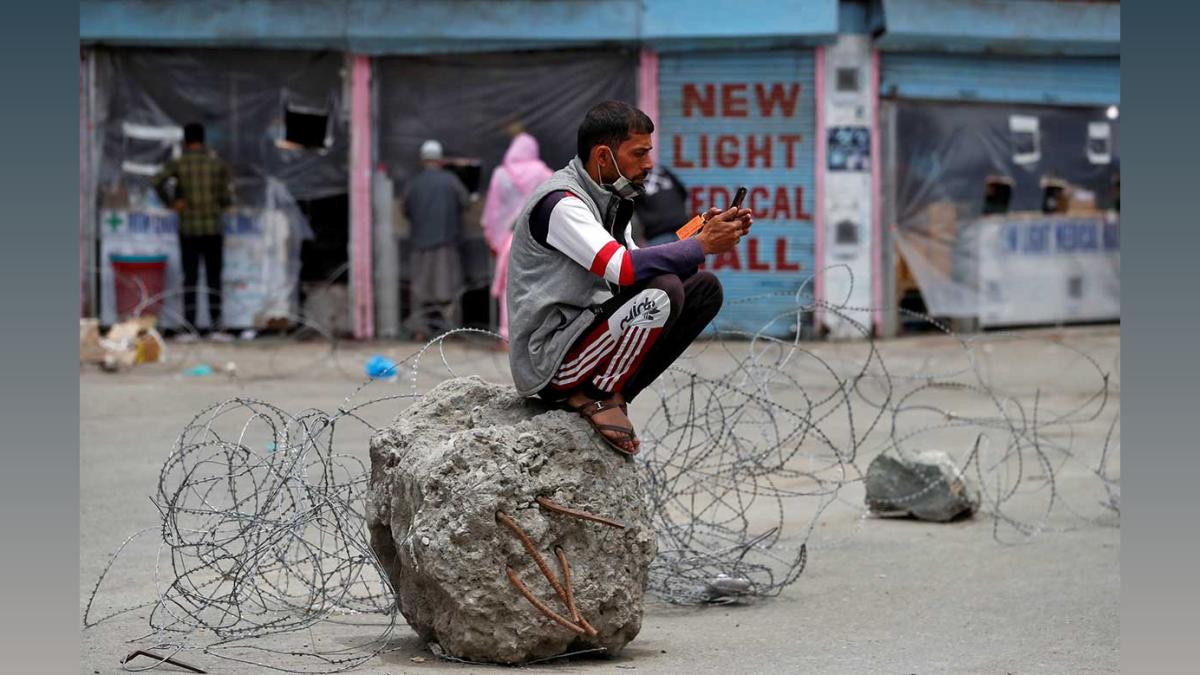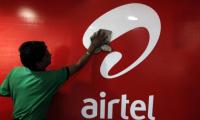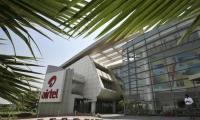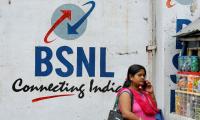Airtel CEO: Tariff Hike Needed, But Pricing Structure Must Change
Bharti Airtel CEO Gopal Vittal says India's mobile tariffs are low compared to other countries and need to increase. However, he emphasizes the need for a pricing structure that encourages users to upgrade to higher plans.

Photograph: Danish siddiqui/Reuters
New Delhi, Oct 29 (PTI) There is an opportunity to increase tariff over a period of time but the pricing structure mechanism needs to change in a way to help users move from lower to medium and higher-level plans, a senior official of Bharti Airtel said on Tuesday while comparing mobile rates in India with under-developed as well as neighbouring economies.
During the company's earning call, Bharti Airtel MD and CEO Gopal Vittal said post-tariff hike the company has not seen impact on SIM consolidation and downgrade in usage as it had anticipated.
He said a graph is made on the two axis of rate per GB and average revenue per user (ARPU) of all the countries, then India will be on the extreme left (lowest tariff) and much lower than sub-Saharan Africa, Bangladesh, Indonesia, etc.
"The opportunity to take up tariffs over a period of time is high. Equally, I think the architecture of pricing needs to change, where you do have an ability for customers to upgrade from low, medium high, and super high in terms of plans," Vittal said.
He said the company is constantly looking at ways and means by which it can take up the ARPU so that the return on capital becomes respectable in this industry.
The company increased mobile tariff in July across several plans in the range of 10-21 per cent.
Bharti Airtel in the September quarter reported an increase in mobile ARPU to Rs 233 from Rs 203 a year earlier.
The mobile data consumption rose 22.6 per cent year-on-year, with consumption per customer at 23.9 GB per month.
Vittal said even after the tariff hike the company was able to hold on to the user base and sort of move them into the right plans.
"I think we have been surprised about the lack of down trading, which we were expecting. We were expecting two things that happened with the tariff repair -- greater amount of SIM consolidation than we saw, and... greater amount of down trading. Both those have not materialised," he said.
Bharti Airtel's mobile smartphone customers increased 2.62 crore to 26.36 crore during the reported quarter.
However, overall, Bharti Airtel and Jio joined Vodafone Idea in losing mobile phone subscribers after tariff hike, according to sector regulator TRAI data.
In July, Bharti Airtel lost 16.94 lakh subscribers and over 24 lakh in August.
Bharti Airtel on Monday reported a 168 per cent year-on-year rise in consolidated net profit to Rs 3,593 crore for the September quarter, and the company unveiled top-level changes, including Gopal Vittal moving into the role of Executive Vice Chairman on January 1, 2026.
India's second-largest telco -- that competes with Reliance Jio and Vodafone Idea in the telecom market -- clocked quarterly revenues of Rs 41,473 crore, 12 per cent higher than the year-ago period, aided by strong momentum in India and growth in Africa.
Vittal said there are several segments that can drive the company's ARPU growth, including international roaming, shift of users from feature to smartphone and prepaid to postpaid plans.
Talking about Capex utilisation, Vittal said the company will invest in building transmission networks for 5G, fixed wireless access, data centres and enhancing capacities for fixed wireless access data consumption, etc, but will no longer invest on 4G network.
During the company's earning call, Bharti Airtel MD and CEO Gopal Vittal said post-tariff hike the company has not seen impact on SIM consolidation and downgrade in usage as it had anticipated.
He said a graph is made on the two axis of rate per GB and average revenue per user (ARPU) of all the countries, then India will be on the extreme left (lowest tariff) and much lower than sub-Saharan Africa, Bangladesh, Indonesia, etc.
"The opportunity to take up tariffs over a period of time is high. Equally, I think the architecture of pricing needs to change, where you do have an ability for customers to upgrade from low, medium high, and super high in terms of plans," Vittal said.
He said the company is constantly looking at ways and means by which it can take up the ARPU so that the return on capital becomes respectable in this industry.
The company increased mobile tariff in July across several plans in the range of 10-21 per cent.
Bharti Airtel in the September quarter reported an increase in mobile ARPU to Rs 233 from Rs 203 a year earlier.
The mobile data consumption rose 22.6 per cent year-on-year, with consumption per customer at 23.9 GB per month.
Vittal said even after the tariff hike the company was able to hold on to the user base and sort of move them into the right plans.
"I think we have been surprised about the lack of down trading, which we were expecting. We were expecting two things that happened with the tariff repair -- greater amount of SIM consolidation than we saw, and... greater amount of down trading. Both those have not materialised," he said.
Bharti Airtel's mobile smartphone customers increased 2.62 crore to 26.36 crore during the reported quarter.
However, overall, Bharti Airtel and Jio joined Vodafone Idea in losing mobile phone subscribers after tariff hike, according to sector regulator TRAI data.
In July, Bharti Airtel lost 16.94 lakh subscribers and over 24 lakh in August.
Bharti Airtel on Monday reported a 168 per cent year-on-year rise in consolidated net profit to Rs 3,593 crore for the September quarter, and the company unveiled top-level changes, including Gopal Vittal moving into the role of Executive Vice Chairman on January 1, 2026.
India's second-largest telco -- that competes with Reliance Jio and Vodafone Idea in the telecom market -- clocked quarterly revenues of Rs 41,473 crore, 12 per cent higher than the year-ago period, aided by strong momentum in India and growth in Africa.
Vittal said there are several segments that can drive the company's ARPU growth, including international roaming, shift of users from feature to smartphone and prepaid to postpaid plans.
Talking about Capex utilisation, Vittal said the company will invest in building transmission networks for 5G, fixed wireless access, data centres and enhancing capacities for fixed wireless access data consumption, etc, but will no longer invest on 4G network.
You May Like To Read
TODAY'S MOST TRADED COMPANIES
- Company Name
- Price
- Volume
- AvanceTechnologies
- 1.27 (+ 4.96)
- 10622563
- Vodafone-Idea
- 11.23 ( -0.27)
- 2443215
- Welcure-Drugs-and
- 0.45 ( -2.17)
- 2379061
- Sylph-Industries
- 0.75 (+ 4.17)
- 1211444
- Akzo-Nobel-India
- 3,100.00 ( -14.46)
- 1203316





